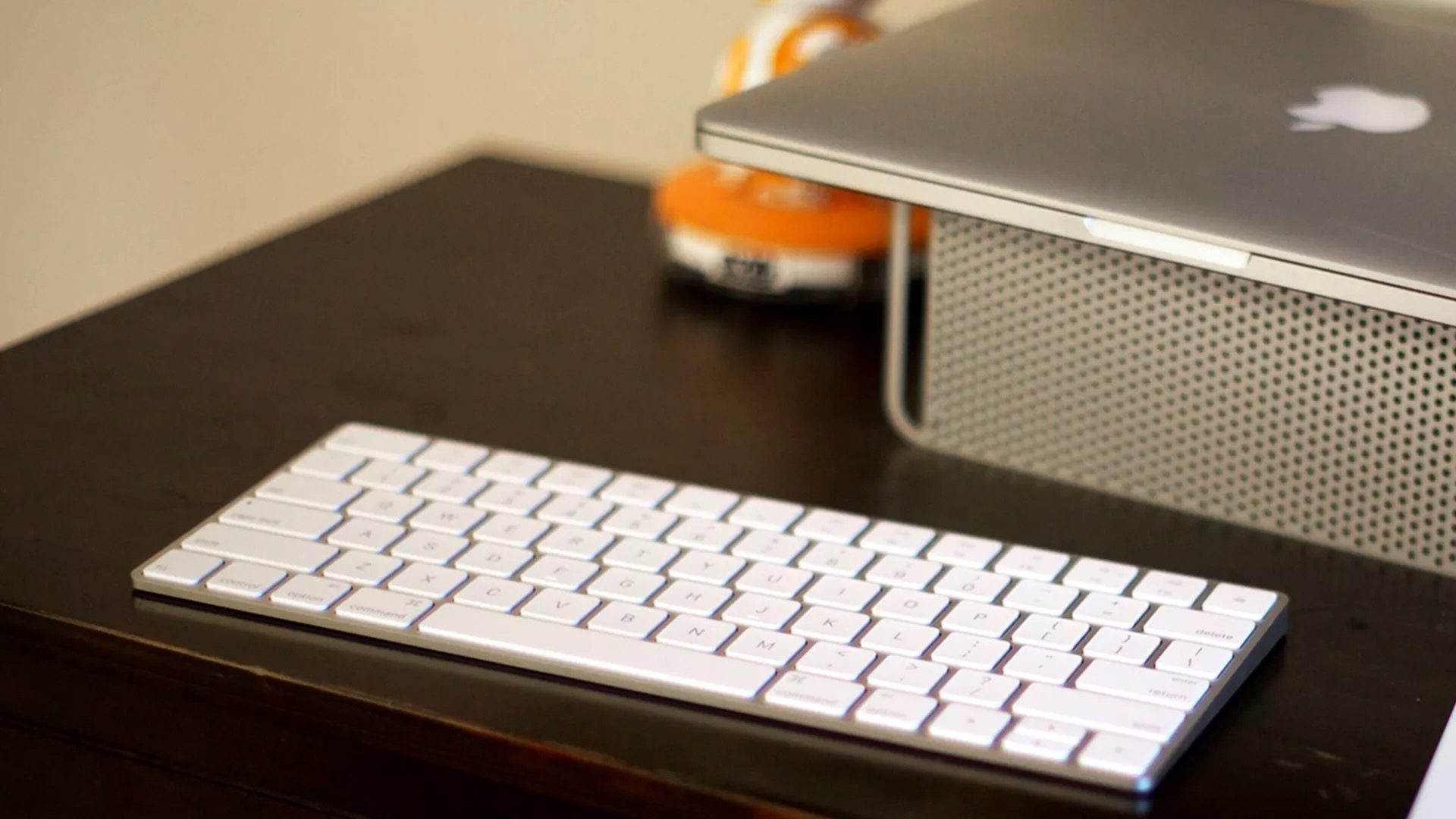Apple released a critical Magic Keyboard firmware update to fix a Bluetooth security flaw that could let someone snoop on your keystrokes
A leaky Bluetooth connection has been fixed.

Owners of Apple's Magic Keyboards have a new firmware update available to them, and that isn't something that happens every day. The new firmware won't grow an extra key or anything, and it in fact won't add any new functionality at all. There aren't even any new bug fixes here either, so those suffering from Bluetooth connection issues will probably continue to do so after this update is installed.
But that doesn't mean the update isn't a worthwhile one, because it absolutely is. That's because the new firmware addresses a security flaw relating to Bluetooth traffic and the way someone could potentially monitor that traffic between the keyboard itself and the target device, whether that's a Mac or another computer.
The issue itself is one that was first confirmed back in December 2023 so it's taken Apple a little while to fix it, although there's a silver lining here — for anyone to take advantage of this flaw they would have first needed physical access to the keyboard itself, something that greatly limits the potential to cause too many people a problem. But the threat is still there, and at least until you download and install this new firmware. The problem? You can't do it yourself, so you'll have to wait for it to happen automatically.
Bluetooth bonanza
The new firmware update, reported by 9to5Mac, brings the Magic Keyboard's firmware version up to number 2.0.6 and is compatible with all models including the Magic Keyboard (2021); Magic Keyboard with Numeric Keypad; Magic Keyboard with Touch ID; and Magic Keyboard with Touch ID and Numeric Keypad. And if you read that and realized you had no idea Apple made so many different models of keyboard, you aren't alone.
In terms of the issue that's been addressed, Apple says that "an attacker with physical access to the accessory may be able to extract its Bluetooth pairing key and monitor Bluetooth traffic." That means that anyone who was able to get hold of your keyboard — and had the required knowledge — would theoretically be able to monitor the keypresses sent from that keyboard to the computer it was paired with. That's bad of course, and it's definitely a security flaw that needed to be fixed.
Unfortunately, you might have to wait a little while to benefit from this particular fix. These kinds of firmware updates are only installed automatically with no manual intervention possible. The update will be installed automatically, and in the background, whenever the affected keyboard is paired with a Mac, iPhone, iPad, or Apple TV.
On the Mac, checking the firmware version is as simple as opening the Bluetooth section of the System Settings app and then choosing the "i" button next to your keyboard's entry. If you see version 2.0.6, you're using the latest firmware already. If not, hang tight — it'll do its thing sooner or later.
Master your iPhone in minutes
iMore offers spot-on advice and guidance from our team of experts, with decades of Apple device experience to lean on. Learn more with iMore!
The Magic Keyboard is arguably one of the best keyboards for your Mac, but there are tons of third-party alternatives if you'd rather go that route. Much like the Magic Mouse, the Magic Keyboard is perfectly fine for most people but those with more specific requirements will need to look elsewhere. One feature the Magic Keyboard does have over its rivals is the Touch ID button, a huge deal for people who don't want to have to enter their passwords all of the time. It's a shame Apple hasn't found a way to offer that as an API for third-party keyboard makers yet.
More from iMore

Oliver Haslam has written about Apple and the wider technology business for more than a decade with bylines on How-To Geek, PC Mag, iDownloadBlog, and many more. He has also been published in print for Macworld, including cover stories. At iMore, Oliver is involved in daily news coverage and, not being short of opinions, has been known to 'explain' those thoughts in more detail, too. Having grown up using PCs and spending far too much money on graphics card and flashy RAM, Oliver switched to the Mac with a G5 iMac and hasn't looked back. Since then he's seen the growth of the smartphone world, backed by iPhone, and new product categories come and go. Current expertise includes iOS, macOS, streaming services, and pretty much anything that has a battery or plugs into a wall. Oliver also covers mobile gaming for iMore, with Apple Arcade a particular focus. He's been gaming since the Atari 2600 days and still struggles to comprehend the fact he can play console quality titles on his pocket computer.
